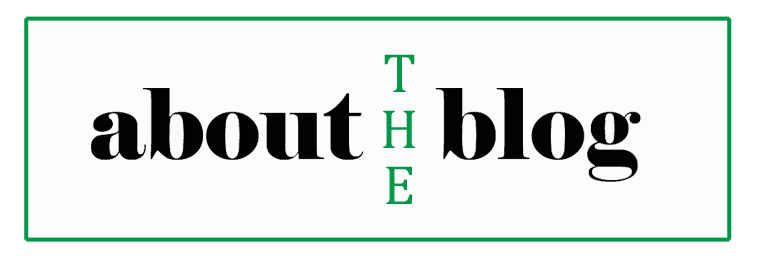
How To Be An Effective Collections Department Manager
The primary goal of any business is to be profitable. That means having a positive cash flow. Without that, business operations are bound to run into brick walls and may eventually become bankrupt.
Unfortunately, cash flow problems abound across various industries today. Many businesses are owed large sums of money, putting them in danger of folding up. Without debt collection agencies, resolving outstanding debts and accounts receivable may prove to be an herculean task for such businesses.
However, this is not a walk in the park for collection agents. Reaching the debtors, discussing their debts, identifying the best incentives to leverage, and finding a viable repayment plan can be very challenging. Without the right skills, training, and professional know-how, collection agents tend to become less productive when faced with difficult debtors. And let’s face it, a larger percentage of debtors are difficult to handle.
It’s not all gloom and doom, though. A team is often a reflection of their manager. So, having an effective collections department manager will increase the likelihood of having effective team members.
That’s why I’m dedicating this post to guide you on how to be an effective collections department manager.

How To Be An Effective Collections Department Manager
Becoming an effective collections department manager is not an impossible target. Far from it!
All you need is to work on certain skills and strategies, hone them, and express these new-found qualities. Here’s how to do just that:
Cultivate excellent communication skills.
What’s the point of communication if the other party doesn’t understand the message? That, right there, is incomplete and ineffective communication. Failure to communicate effectively with your team will result in lots of confusion, mistakes, misunderstandings, underperformance, and, worst of all, failure to recover your client’s debt.
To prevent this, be an active listener. Don’t just listen for listening sake; really listen to fully understand their concerns and opinions. Let them feel heard. Then, speak to them in clear and concise terms to avoid any misunderstandings. Depending on who your audience is, adapt your communication style to suit the situation at hand, whether it’s motivating your team or negotiating with clients. And most importantly, create an environment that promotes open dialogue within your department. This will, in turn, foster a culture of transparency and collaboration.
Stay updated on industry regulations and best practices.
You can’t give what you don’t have. As the department head, you are expected to know your stuff. That includes all the latest best practices and regulations in the industry. Otherwise, how will you show your staff the ropes? How will you correct their mistakes if you can’t spot them yourself?
Demanding increased productivity from your team will be a complete waste if they neglect compliance during the collection process. And as their boss, it’s your job to ensure they know all the dos and don’ts. Therefore, you need to stay ahead of the curve. But how?
Attending industry conferences and workshops consistently is a good place to start. Subscribing to publications and online resources (like us right here at Collection2Connections) that are relevant to the collection industry is another good option. Also, forge positive relationships with other professionals in the field for knowledge sharing.
Implement efficient processes and technology.
We’re in a digital age, so knowing how to leverage these new technologies to streamline daily operations is important. Deploying emerging technologies and collections software to meet the organization’s needs will not only earn your department outstanding recognition, but also, bring job fulfillment. However, you don’t have to do this all on your own. Encourage your team to always feel free to come forward with any suggestions that can improve workflow and other processes.

Develop strong leadership and team management skills.
Part of every manager’s primary responsibilities include leading and inspiring their team to achieve set departmental goals. How successful your department is will depend on your level of leadership and team management skills.
Leading by example is one of the best ways to become a more effective leader. Show your team how it’s done. That includes the work ethic and professionalism expected of them. But that’s not all. Give prompt feedback and recognition from time to time. These go a long way in boosting their morale and motivating them to do even better. Organizing periodic training and mentoring programs for your staff is another way to build a robust, highly-productive team.
Master data analysis and performance metrics.
In the debt collection world, data is power. How well you can interpret and act on key performance indicators (KPIs) can make a significant difference in your team’s effectiveness.
To excel in this area, identify the key metrics for rewarding your team. Then, periodically review performance data as a way of making the team more accountable and fostering continuous improvement. Don’t forget to take this data into consideration when making vital decisions, be it resource allocation, target setting, or strategy development.
Must-Have Collections Manager Skills
Here are some crucial skill sets any effective collections manager must possess and develop:
Negotiation Prowess
Negotiation is a key feature of both legal and non-legal debt collection. Your negotiation skills may be the difference between making your clients happy and kissing their money goodbye. The best negotiators are adept at finding solutions that benefit both parties both your organization/client and the debtor.
Want to master negotiations? Then, learn to listen attentively. Understand the needs of both parties, as well as what drives them. Like that famous quote, “The devil is in the details.” When you pay attention to both verbal and non-verbal cues, you’ll find those tiny bits of valuable information you can put to good use.
You can also prepare your team beforehand by role-playing different scenarios with them. Also, carry out appraisals by seeking feedback on your negotiation style and outcomes.
Check out these posts for other valuable debt collection negotiation strategies and how to improve your negotiation skills.
Emotional Intelligence
Emotional intelligence refers to the capacity to recognize, understand, and manage your emotions, irrespective of the situation at hand. It’s the ability to read the room, adjust appropriately, and keep everything civil. This particular skill is very useful for successful debt collections, particularly in tense situations, which is often the case in debt recovery.
To improve your emotional intelligence, practice self-awareness through self-reflection and mindfulness. Also, work on being empathetic in your daily interactions. And most importantly, learn ways to manage stress effectively. People tend to lash out the most when stressed and overwhelmed, which can negatively impact debt collection. Find techniques to stay calm in challenging situations, whether it’s by taking deep breaths or counting down numbers.

Strategic Thinking
This is a really crucial skill to have as a collections manager. You need to have a bird’s-eye view of the business and see far into its future. Then, you map out long-term plans that will take the organization from its current state to a desired future goal.
While strategic thinking may appear complicated, it’s not impossible. To be an excellent strategic thinker, you MUST stay informed about all the industry trends and economic factors. You should also practice scenario planning to prepare the organization for various outcomes. Then, set aside time to periodically review and update your plans.
Time Management and Prioritization
Time is money. So, learn to maximize your time by giving more priority to tasks based on urgency and importance. Learning to say NO to non-essential tasks that don’t align with your priorities is also very important. Doing these allows you and your collections team to focus on the most impactful activities, saving you from unnecessary stress.
Adaptability and Continuous Learning
The collection industry is constantly evolving. There will always be new rules, technologies, and best practices in the field. To truly plant your feet in this industry and stand the test of time, you must embrace continuous learning and be willing to adapt to changing times. Don’t be scared of change. Rather, see it as an opportunity for growth and breaking new frontiers!
The path to becoming an effective collections department manager is both challenging and rewarding.
Yes, acquiring the skills discussed will help you excel at the department manager job. However, you don’t have to embark on this journey alone. Growth comes faster when you have a supportive community to lean on. And that’s where Connection2Collections comes into play.
By joining Connection2Collections, you’re not just creating a profile as an individual or company; you’re opening doors to invaluable insights from industry veterans. You’ll also get up-to-date information on industry trends and best practices. And the networking opportunities? They can shape your career and take you to the next level. See you there!

